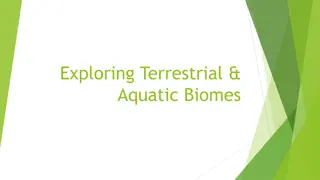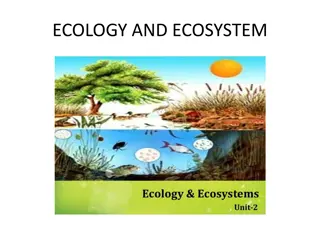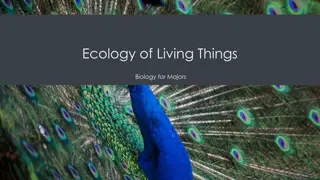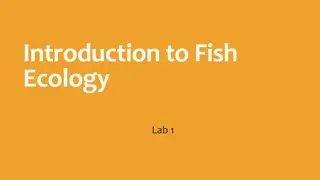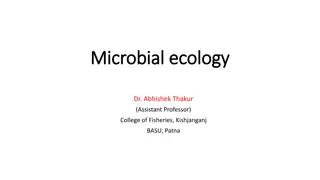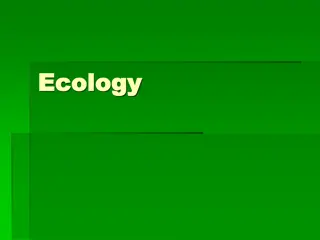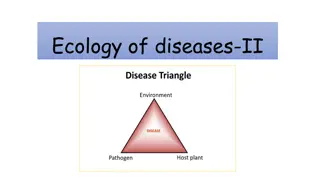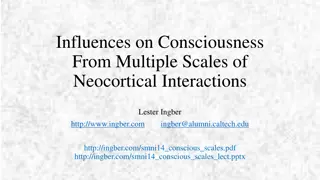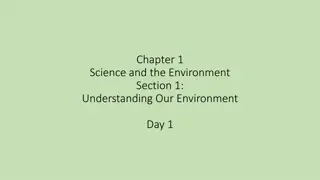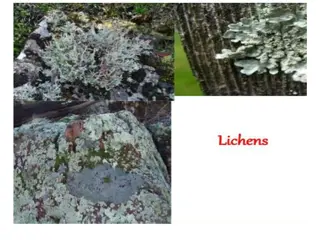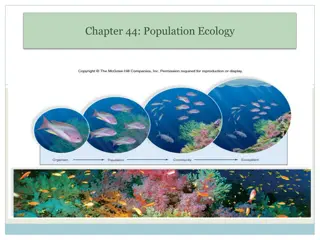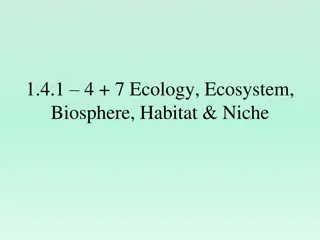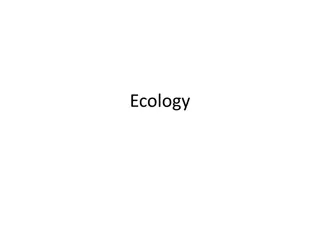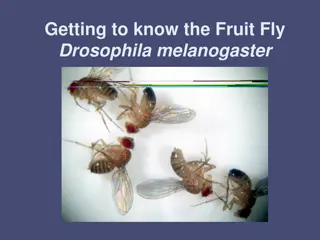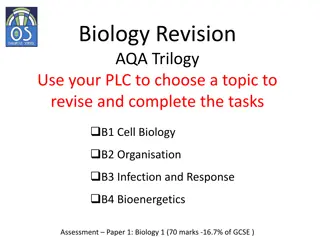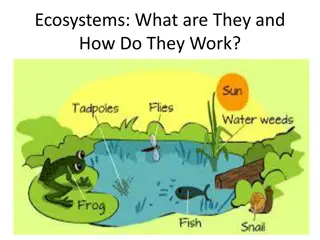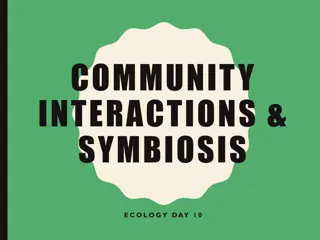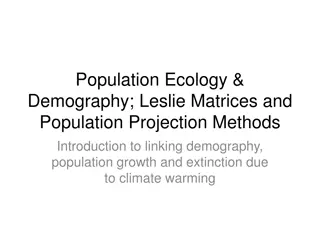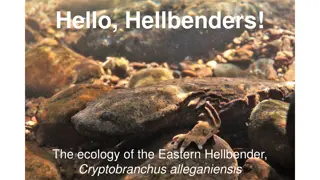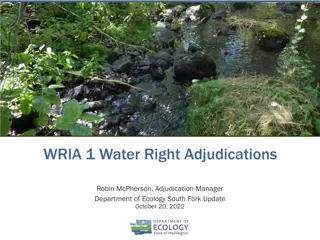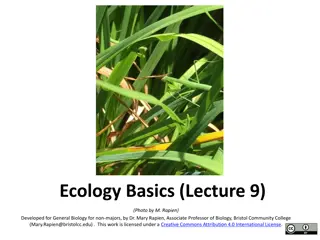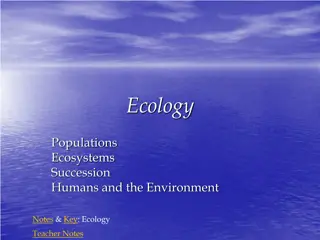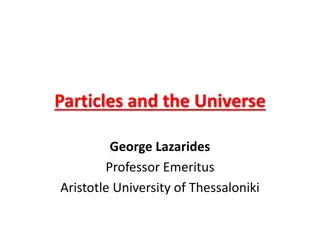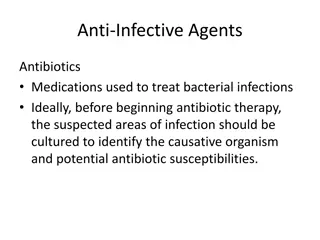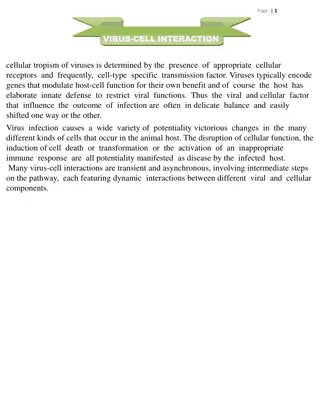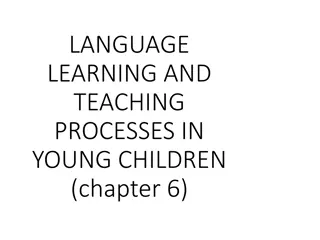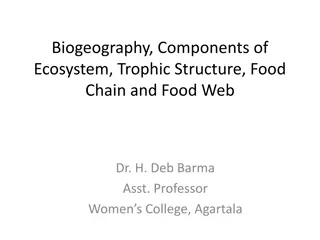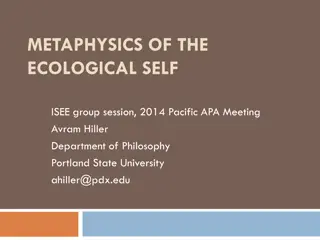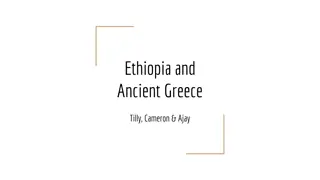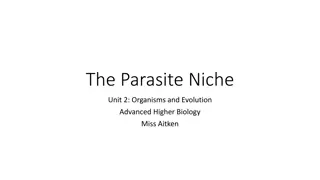Principles of Ecology: Understanding Organism-Environment Interactions
Ecology is the scientific study of how living organisms interact with each other and their environment. It involves understanding organisms at their native habitats, from individuals to ecosystems. The discipline encompasses various branches and focuses on the relationships shaping the distribution and abundance of organisms. Different authors have defined ecology in distinct ways, emphasizing interactions, energy flow, and the biosphere. Principles of Ecology explore the rules governing these vital interactions in nature.
Download Presentation

Please find below an Image/Link to download the presentation.
The content on the website is provided AS IS for your information and personal use only. It may not be sold, licensed, or shared on other websites without obtaining consent from the author. Download presentation by click this link. If you encounter any issues during the download, it is possible that the publisher has removed the file from their server.
E N D
Presentation Transcript
BONGA UNIVERSITY COLLEGE OF NATURAL & COMPUTATIONAL SCIENCES DEPARTEMENT OF BIOLOGY Principles of Ecology (Biol. 2051)
Introduction to Ecology Introduction to Ecology O b j e c t ive s At the end of this chapter the students should be able to: Define ecology from different perspectives Discuss the importance of having different branches of ecology List the branches of ecology
Brainstorm what does it mean by the term ECOLOGY! .
Cont. Definition of Ecology The word ecology is derived from two Greek words oikos and logos. Oikos - means house or place to live Logos - means a study of Ecology means the study of organisms athome (at their native environment) The word ecology was first coined by Ernest Haeckel in 1869 He described ecology as the scientific study of the interactions between organisms and their environment
Cont. Ecology is the study of the relationship of living organisms among themselves & with the non-living components of the environment Ecology deals with the biology of organisms, populations, communities, ecosystems, etc. and their functional processes in their natural environment Different authors defined ecology in different ways The scientific study of the interactions that determine the distribution and abundance of organisms Krebs, 1972 The scientific study of the relationships of living organisms with each other and with their environments Charles H. Southwick, 1976
Cont. Begon, Harper & Townsend (1986) jointly defined ecology as the description, explanation and prediction of individuals, populations, and communities in space and time The interactions between organisms and the transformation of flux of energy and matter Likens, 1992 As a result: Ecology deals with organisms, populations, communities, ecosystems and the biosphere
Cont Generally, Ecology is: the science of the habitat the study of organisms in their natural environment the study of organisms interactions with one another and with their environment . Therefore, Principle of Ecology is a science that studies about rules governing interactions that exist: Among different organisms in the space Between organisms and their environment
Branches of Ecology Ecology is a multidisciplinary and boundless in its concern extending across the physical, biological and social sciences Ecological studies may be conducted at different levels of organism, habitat or ecosystem & above In all ecosystems living things interact, share common habitat and functionally they are interdependent Therefore, the following are some of the branches of ecology
division of Ecology Ecological studies may be conducted at different levels of organism, habitat or taxonomic affinities 1. Division based on taxonomic affinities Plant ecology i. Animal ecology ii. 2. Division based on habitat Aquatic i. Terrestrial ii. 3. Division based on level of biological/organizational hierarchy Autecology All branches of ecology included i. Synecology either of these two branches ii.
Cont Autecologydeals with the dynamics of species populations (individual species) and how they interact with the environment Synecology is a sub-discipline of ecology which studies the distribution, abundance, demography, and interactions between coexisting populations species/community) in relation to their environments. (group of all The study related to forest ecology, grassland ecology, desert ecology, marine ecology, limnology etc. are treated under Synecology Population ecology- examines interactions that occur between a population and its environment
Cont Palaeoecology: - deals with organisms and their habitat in the geological past Conservation ecology: - deals with the application of ecological principles to the proper management of resources leading to sustainable yield of resources for human welfare. It also studies how to reduce the risk of species extinction Resources ecology: - deals with renewable and non renewable resources and their management Pollution ecology: - studies problems associated with the movement of pollutants in the environment
Cont Chemical ecology: it is concerned with the chemical o affinity or preferences shown by different organisms Human ecology: it deals with the effects of human o activities on environment and vise versa. Applied ecology: it deals with the application of o ecological concept to human needs including wild life management, biological control, forestry and conservation of natural resources.
Cont Physiological ecology- the way that the body process of organisms is adapted to the physical environment. e.g. responses of individual organism to temperature & moisture, etc. Genetic ecology- studies the way in which organisms ecology shape its heredity and the ways in which genes influence an ecological processes. Ecosystem ecology- the study of most inclusive interactions, those among all the abiotic and biotic components of the system. Evolutionary ecology: - natural selection and evolution of populations. Behavioral ecology: - Social life of animals (instinct behavior esp. birds & fish, etc)
Class Work Class Work Please form a group of three and discuss the following review questions Define ecology from different perspectives 1. List and define at least ten different branches of ecology 2. Differentiate autecology from synecology 3. Suppose more than hundred Factories in Addis Ababa disposing wastes in to Akaki River, which tends to influence life in the water. Which allied field of ecology is concerned for this? 4. Describe and discuss sub disciplines of ecology based on levels of biological hierarchy 5.


